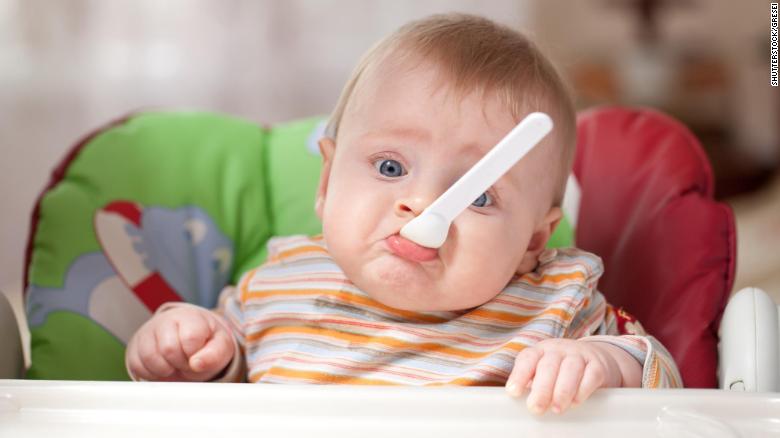Nearly all toddlers and majority of babies eat too much added sugar in US.
Nearly all babies and toddlers in the U.S. consume added sugars in their diet, much of which comes from foods thought to be healthy, like yogurt and even snacks marketed toward babies like puffs, applesauce, and crackers. Early added sugar intake could lead to poor nutrition and health later on in childhood and adolescence.
Consuming added sugars is a risk for infants and toddlers because it can influence their taste and future food preferences. “The consumption of added sugars among children has been associated with negative health conditions such as cavities, asthma, obesity, elevated blood pressure, and altered lipid profiles,” said lead investigator Kirsten Herrick, of the National Institutes of Health. It’s crucial to focus on healthful nutrition in the baby and toddler years as eating patterns early in life strongly shape eating patterns as kids get older.
The 2019 study on added sugar intake for babies and toddlers ages 6-23 months found that for toddlers, most added sugars came from fruit drinks, candy, and sweet baked goods, while sugar intake for babies mostly came from yogurt, snacks marketed toward babies, and sweet bakery goods (Herik et al, 2019).
Foods high in sugar are generally not nutritionally-dense, meaning kids miss out on getting healthy, balanced meals when more calories come from sugar. When choosing snacks for babies and toddlers, it’s important to check labels on packaged foods. Even foods marketed toward babies and toddlers like applesauce, crackers, puree pouches, puffs, and yogurt melts have added sugars.
What’s better than buying packaged snacks? Offer fruit and vegetables. Introducing fruits and veggies early and offering them often can prevent picky eating (or make picky phases shorter), and improve health now and in the future. Instead of reaching for pouches and purees, offering soft, small pieces of fruit and veggies can help babies get used to the taste of fruits and vegetables without them being overpowered by fruit juices, which is common in baby food pouches.
Easy fruit and veggie snacks for babies and toddlers
(note: cut into small pieces for babies and young children)
- Berries
- Banana slices
- Peaches, pears, nectarines
- Apples
- Applesauce (no added sugar)
- Steamed cauliflower, carrots, or broccoli
- Bell peppers
- Cucumber
- Avocado
- Raisins
- Sweet potato
If you need assistance in helping your kids eat a balanced diet or overcome pickiness, contact the W.E.L.L. Clinic at Children’s Primary Care Medical Group. The W.E.L.L. Clinic specializes in helping kids, teens, and families make habit changes to improve health in the following areas: nutrition, physical activity, sleep, stress management, and screen time. To make a W.E.L.L. Clinic appointment in La Costa call 760-633-3640, and for Oceanside call: 760-547-1010.
As a free, added service for the community, Children’s Primary Care Medical Group is now offering Walk with a Doc, a weekly walk for families, at two convenient locations in North County. Walk with a Doc is offered in Vista on Thursdays at 4:15 and La Costa on Tuesdays at 4:00pm. A healthy snack is always provided. Check out walkwithadoc.org/carlsbad for more information.
Sources: Herrick, K.A., Fryar, C.D., Hamner, H. C., Park, S., Ogden, C.L. 2019 . Added Sugars Intake among US Infants and Toddlers. Journal of the Academy of Nutrition and Dietetics. https://doi.org/10.1016/j.jand.2019.09.007



